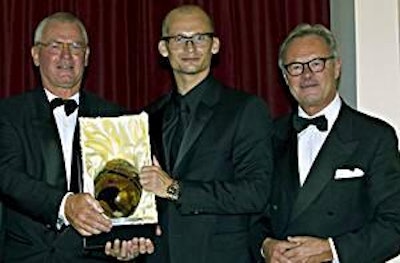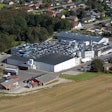
Increasing numbers of consumers are now classed as ethical consumers – as well as judging a product on its own merits, purchasing decisions are taken with regard to the supplying company and its behaviour. With this in mind, corporate social responsibility (CSR) may not only be the morally correct thing to do, it can also be good for the bottom line. But what exactly is CSR?
Corporate Social Responsibility (CSR) is a form of corporate self-regulation integrated into a business model. Ideally, CSR policy functions as a built-in, self-regulating mechanism whereby a business monitors and ensures its support of law, ethical standards, and international norms.
Businesses embrace responsibility for the impact of their activities on the environment, consumers, employees, communities, stakeholders and all other members of the public sphere. Additionally, CSR-focused businesses can proactively promote the public interest by encouraging community growth and development, and by voluntarily eliminating practices that harm the public sphere, regardless of legality.
Earlier this year, the CSR initiatives of the Sanovo Group of companies was recognized at the 2010 International Egg Commission Conference, Prague, and awarded the Crystal Egg Award.
The Sanovo Group operates what it calls Company Karma. Through this programme, the various businesses that make up the group are able to impact the communities where they do business. Initiatives within Company Karma can range from improving living standards through to achieving environmental change.
Christian Stadil, co-owner, comments: “In the Sanovo Group of companies, we work from a ‘four-times win’ notion, where we aim at creating value for our four most important stakeholders – our company, its employees, our partners and customers and last, but not least, causes where we can make a difference or, to use a big word, the world.”
A number of activities are carried out across the group, for example the ingredients division supports measures to address climate change through a World Wide Fund for Nature climate partnership.
Chicken & Egg
Yet, the CSR activities of the group go beyond simply financial support. Its technology division has been supporting the establishment of a chicken farm in cooperation Danchurchaid, a Danish non-governmental humanitarian organization.
Four villages in central Malawi participate in the project that aims to increase women’s income through the production and sale of eggs in the local market. The project is implemented by Danchurch’s local partner the Evangelical Lutheran Development Service (ELDS).
Local women have been given laying hens and, in addition, receive training in business planning and ongoing support from the local partner. Sanovo Technology Group has devoted five years to the project, which began in December 2007, and so will continue to participate into 2012.
Joyce Khofiman, who has been part of the Chicken & Egg project since its inception says: “We want our children to become educated as teachers, doctors and development workers. Maybe, some day, one from the village will go to the university and help Malawi.
“Thanks to the chickens and the seeds we have got an income and are now able to pay for school fees. But the most important change is that we have food for everybody and we don’t starve any more.”
Malawi is not the only African focus within Sanovo’s CSR work, and as part of the submission that won the company the Crystal Egg Award, the company pointed to its “inventive charity” in the poorest countries in the world, Sierra Leone.
The company’s sports clothing division, mummel, has been sponsoring the national football team. In addition, the division is in the process, together with the charity Save the Children, of opening a range of football schools in the country using the national team players as models and coaches.
Africa is also the recipient of funds raised by the “Shipping with a difference” initiative. Inaugurated in the southern Japanese city of Oita, with the launch of a new ship called Thorco Africa, and organized in cooperation with the Red Cross, an UNCUT percentage of the ship’s turnover goes to humanitarian projects in Africa.
Climate
The Sanovo Group is also working closer to its home, and is participating in the Rotterdam Climate Initiative (RCI), which aims to bring about 50% reductions in CO2 emissions and “full climate change resilience by 2025”.
The RCI is an initiative of the City of Rotterdam, the Port of Rotterdam, and the DCMR Environmental Protection Agency. Through Sanovo’s property division, West Star Group, the company has installed two green roofs on towers of its flagship Westblaak building. They contribute to water management, aid insulation and decrease CO2. In addition to this, LED lighting has been installed in most of the public areas around the building.
However, the company’s green initiatives do not stop there. The latest green project is the transformation of the company’s car park building into a huge green “lung” – making it the largest vertical green wall in Europe. The plants grown on the building are equivalent to 250 large trees, making it the largest park in Rotterdam. The building also doubles up as a landmark for the city, and has gained recognition from the local government.
Variety
CSR can take a variety of forms, from pure corporate philanthropy, to operational CSR and corporate marketing, and community volunteering.
An aspect that Sanovo has included in its Company Karma is a modest approach to communication, and, wherever possible, to enlist a partner. The latter helps to reinforce facts, and informs customers about what is going on, without giving the impression of being boastful.


















